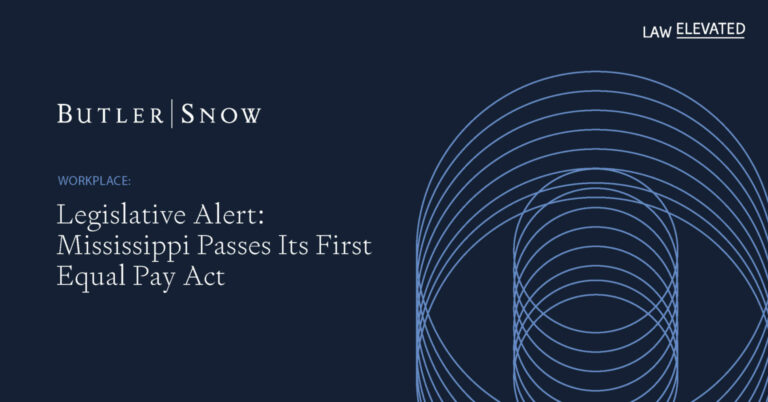On April 20, 2022, Governor Tate Reeves signed the “Mississippi Equal Pay for Equal Work Act.” The new law, which takes effect on July 1, prohibits an employer from paying one employee less than another employee of the opposite sex for equal work. To be considered “equal,” the work must require equal skill, education, effort, and responsibility, and it must be performed under similar working conditions. The law applies to private and public employers with five or more employees, and it only applies to employees who work forty or more hours per week.
The Act’s equal-pay protections do not apply where the differences in pay are because of a seniority or merit system, or a system where earnings are measured by quantity or quality of production. It also codifies a justification for pay disparities based on “any other factor other than sex.” Such factors may include the employee’s wage history or continuity of employment, the competition for the employee’s services, and the employee’s attempts to negotiate his/her wages.
Employers in Mississippi need not be too concerned about this new law because the federal Equal Pay Act already affords the same protections to employees nationwide. One potential impact of the new law is that an aggrieved employee can now bring a gender-based pay claim in Mississippi state court that the employer will not be able to remove to federal court. And although the remedies available under state and federal law are largely the same (reasonable attorney’s fees, prejudgment interest, back pay, and costs of the action), this new law will not allow a plaintiff to recover the additional award of liquidated damages available under federal law. Considering that the new law does not allow a plaintiff to bring the same claims under both the state and federal laws, the plaintiff’s inability to recover additional damages will likely cause most plaintiffs to seek relief under the existing federal law instead of the new state law.
For the complete text of the law, please visit: http://billstatus.ls.state.ms.us/documents/2022/pdf/HB/0700-0799/HB0770SG.pdf
